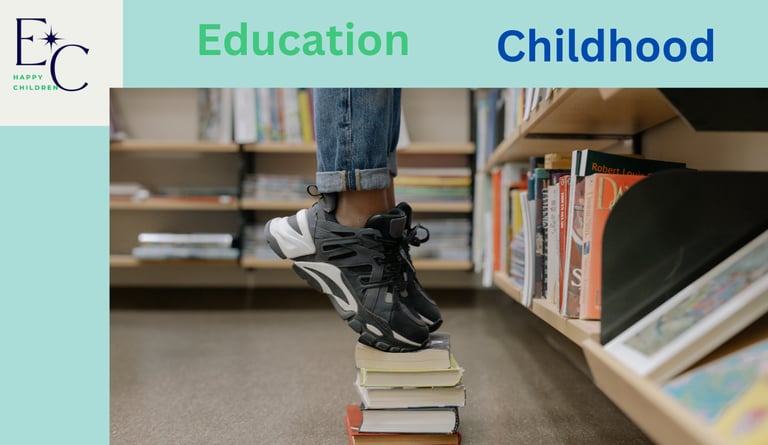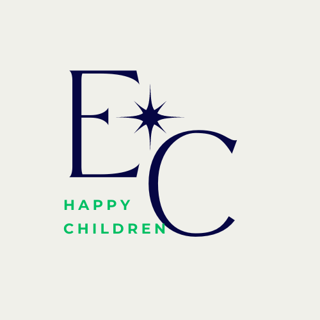Skill development courses and students' success.
Skill development courses and students' success Designed for both career advancement and personal enrichment, these courses help you acquire new skills, refine..
9/9/20246 min read


Skill Development Courses: Enhancing Your Career and Personal Growth
In the modern job market, skill development courses are crucial for advancing both professionally and personally. These programs are crafted to help individuals gain new skills, refine current ones, and remain competitive in their careers. Whether you aim to switch careers or boost your current skill set, these courses offer specialized training that can lead to new opportunities and increased job satisfaction.
A major benefit of skill development courses is their adaptability. With many courses available online, you can learn at your convenience and pace. This is especially useful for busy professionals balancing work and other commitments. Online courses cover a diverse array of subjects, from technical skills like programming and data science to soft skills such as communication and leadership.
Additionally, skill development courses emphasize hands-on learning and practical application. Unlike traditional academic programs that may focus primarily on theory, these courses are designed to provide actionable skills and real-world experience. This practical focus helps you apply new knowledge effectively, enhancing your competency and confidence in your profession.
With the growing need for specialized skills, skill development courses have become a valuable asset. As industries evolve and new technologies are introduced, having up-to-date skills is crucial. Enrolling in these courses not only keeps you informed about industry trends but also offers certifications that can improve your resume and showcase your dedication to professional growth.
Skill development courses also facilitate networking and career advancement. Many programs connect you with industry experts, mentors, and fellow learners, providing valuable insights and support. Building relationships within these networks can offer new career opportunities, broaden your perspectives, and help you explore different paths in your field.
Finally, investing in skill development courses represents a proactive approach to personal empowerment. Continuous learning boosts career prospects and fosters personal growth. By actively pursuing these courses, you enhance your job satisfaction, explore new interests, and develop a rewarding career that aligns with your ambitions and goals
Why Communication Skills Are Crucial for Students?
In the modern educational landscape, developing strong communication skills is essential for students. These skills can greatly impact a student’s academic success, social interactions, and career opportunities. Effective communication helps students better engage with their teachers and peers, leading to enhanced classroom discussions and successful teamwork on group assignments. Clear expression and active listening are key to improving academic performance and fostering a collaborative learning environment.
Additionally, excellent communication skills play a vital role in building and maintaining positive relationships with classmates. Students who excel in communicating are more adept at sharing ideas, resolving disagreements, and working collaboratively. These interpersonal abilities contribute to a more harmonious and productive classroom atmosphere, allowing students to interact more effectively and establish meaningful connections with others.
Beyond academic and social advantages, communication skills are crucial for professional success. Employers place high value on clear verbal and written communication abilities. Students who master these skills are better prepared for job interviews, presentations, and networking, setting the stage for career growth and leadership opportunities. Effective communication is a key asset in achieving career advancement and success.
Furthermore, developing communication skills boosts students’ self-confidence. When students can clearly express their ideas, they are more likely to engage in class discussions and take on public speaking roles. This increased confidence can extend to extracurricular activities and leadership positions, providing a strong foundation for personal and professional growth.
Lastly, nurturing communication skills from an early age promotes lifelong learning and adaptability. As students advance through their educational and professional paths, their ability to communicate effectively will support their ability to tackle various challenges and opportunities. Investing in these skills early on ensures that students are well-prepared for future success in diverse environments.
Childhood Learning Enrichment: Paving the Way for Future Success
Early childhood is a pivotal stage for learning and growth, laying the groundwork for academic achievement and personal development. Enhancing learning during these years through various enrichment activities can profoundly impact a child's cognitive and emotional progress. Engaging children in diverse educational experiences not only sparks their curiosity but also builds fundamental skills crucial for their future success.
One highly effective method for enriching a child's learning experience is through exposure to a wide range of books. Reading introduces children to new cultures, concepts, and viewpoints, broadening their understanding of the world. By incorporating different genres and subjects into their reading habits, parents and educators can ignite intellectual curiosity and instill a passion for learning. Studies indicate that children who read regularly show improved literacy, better focus, and enhanced academic performance.
Beyond reading, interactive educational activities such as games, puzzles, and hands-on projects are essential for learning enrichment. These activities promote critical thinking, creativity, and problem-solving skills. Active participation in learning processes helps children grasp concepts more deeply and retain knowledge more effectively. Educational toys and interactive activities also foster social skills and teamwork, which are vital for effective communication and collaboration.
Positive reinforcement and encouragement are also crucial elements of effective learning enrichment. Acknowledging and celebrating a child’s achievements, regardless of size, boosts their confidence and encourages further learning. Providing a nurturing and supportive learning environment helps children navigate challenges and fosters resilience and a positive attitude towards education.
Parental involvement is fundamental to optimizing learning enrichment benefits. Parents who engage in their child's educational experiences—whether by reading together, exploring new ideas, or supporting academic activities—reinforce the value of education. By creating a strong, supportive relationship and showing genuine interest in their child's learning, parents inspire a lasting enthusiasm for knowledge and personal development. Investing in early learning enrichment not only enhances a child's academic skills but also equips them with the confidence and abilities needed for lifelong success.
Do Early Childhood Need Communication Skills?
Introduction
Effective communication is vital for individuals of all ages, but it holds particular importance during early childhood. Mastering communication skills in these formative years can have a lasting impact on a child's social, emotional, and cognitive development. This article examines the critical reasons why communication skills are necessary for young children and how these abilities form a solid foundation for future success.
The Importance of Communication Skills
In early childhood, communication serves as the primary avenue for children to express their needs and emotions. When children can communicate effectively, they can share their thoughts and feelings, enhancing their social interactions. Being able to articulate their needs increases the likelihood of establishing positive relationships with peers and adults alike.
Language Development
Language development is a crucial element of early childhood growth. During these formative years, children quickly expand their vocabulary and grasp grammatical structures. Studies show that children who build strong language skills early on tend to achieve better academic outcomes in later years. Providing a stimulating language-rich environment from the beginning can greatly facilitate language acquisition.
Social Skills and Interactions
Developing strong communication skills is closely tied to improved social interactions. Children who can express their thoughts and feelings effectively are more likely to form friendships and resolve conflicts successfully. These abilities help them navigate complex social situations, ultimately boosting their confidence and emotional intelligence.
Emotional Regulation
Communication skills are also essential for effective emotional regulation. When children can verbalize their feelings, they gain a better capacity to manage their emotions constructively. This ability can help reduce frustration and anger, leading to a more peaceful atmosphere both at home and in educational settings.
Cognitive Development
There is a strong link between communication skills and cognitive development. Meaningful conversations enable children to develop critical thinking and problem-solving abilities. By discussing their thoughts and experiences, children can deepen their understanding of the world, igniting curiosity and a passion for learning.
Parent-Child Interaction
Interactions between parents and children are vital for fostering communication skills. Activities like reading, storytelling, and engaging in playful conversations significantly enhance language acquisition and comprehension. These meaningful exchanges provide essential support as children build their communication abilities.
Role of Play
Play is a crucial aspect of early childhood that facilitates the development of communication skills. Through various play activities, children explore language, take on different social roles, and navigate various scenarios. This enriches their vocabulary and enhances their negotiation and collaboration skills with peers.
Impact on Academic Success
Children who develop robust communication skills often achieve higher levels of academic success. The ability to clearly express thoughts and engage in discussions contributes to more effective learning experiences. Early childhood education programs that emphasize communication can significantly enhance children’s academic pathways.
Bridging Cultural Gaps
In an increasingly diverse world, communication skills are essential for bridging cultural divides. Early exposure to different languages and cultures fosters empathy and understanding. Children who develop these skills are better prepared to thrive in diverse social and professional environments.
Technology and Communication
In today's digital era, communication extends beyond face-to-face interactions to include various technological platforms. Early childhood education is increasingly incorporating digital tools to enhance communication skills. Teaching children to communicate effectively in both in-person and digital contexts equips them for a future that heavily relies on technology.
Parental Guidance and Support
Parents play a critical role in developing their children's communication abilities. By modeling effective communication and fostering open dialogue, parents create a nurturing environment. This active involvement helps children feel valued and boosts their confidence in expressing themselves.
Early Intervention Strategies
For children facing challenges in communication, early intervention is essential. Programs focused on speech therapy and language development can significantly improve outcomes. Identifying and addressing communication issues at an early stage leads to enhanced skills and greater success in later years.
Community and Social Resources
Community resources like libraries, playgroups, and educational programs offer valuable opportunities for children to develop their communication skills. These settings provide essential social interactions that contribute to language growth. Engaging with peers and adults in diverse environments enriches children's communication experiences and enhances their overall learning.
Conclusion
In conclusion, communication skills are crucial for healthy development in early childhood. They significantly influence social interactions, emotional regulation, cognitive growth, and academic success. By emphasizing the development of communication skills from an early age, we can foster positive outcomes for individual children and strengthen our communities.
Call to Action
Parents, educators, and caregivers should prioritize the cultivation of communication skills in early childhood. By creating enriching environments and offering diverse opportunities for interaction, we can empower children to thrive and prepare them for a successful future.
Foster positive learning environment for young minds with perfect advices
© 2024. All rights reserved.
